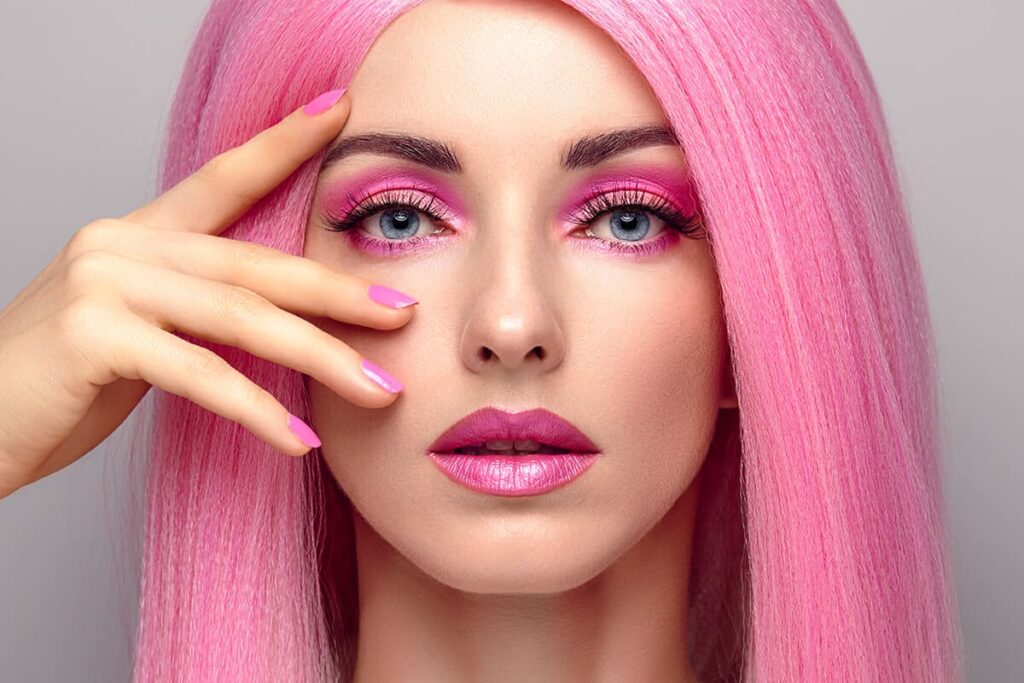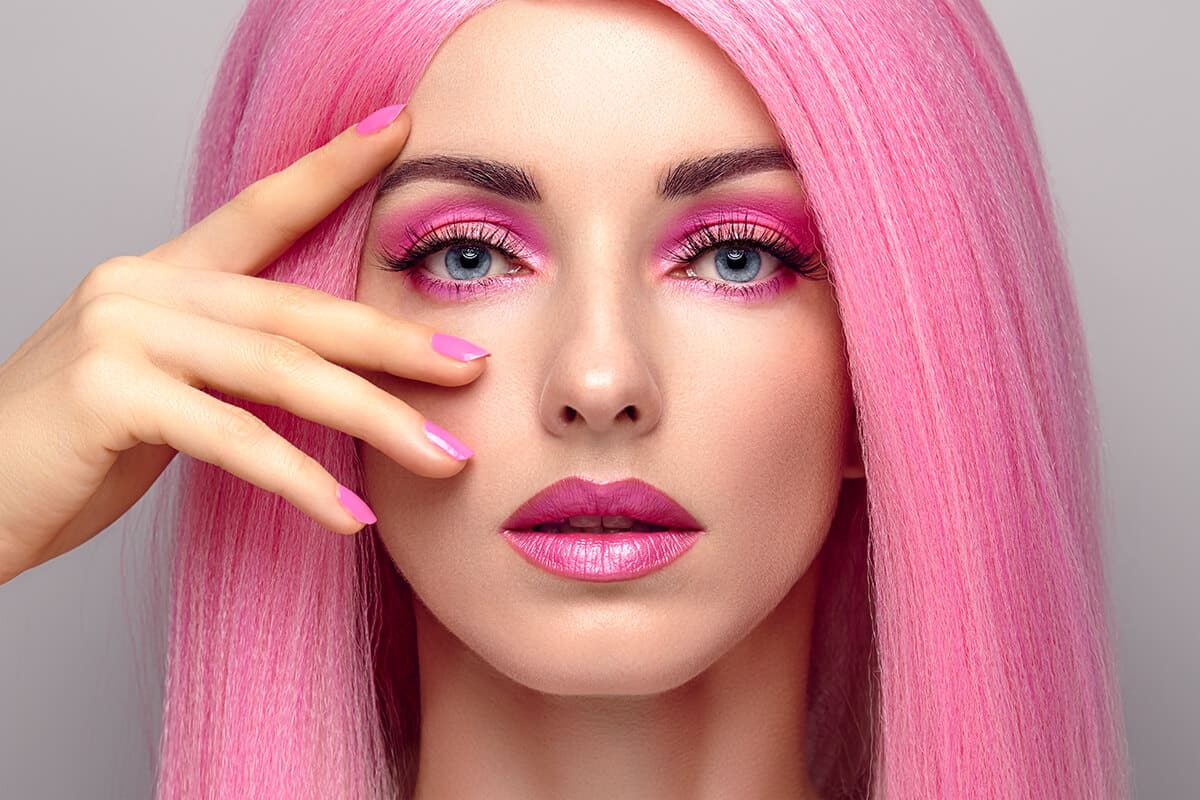
Unlock Your Creative Potential: A Comprehensive Guide to College for Makeup Artists
Are you passionate about makeup and dream of turning your artistic talent into a successful career? A college education specifically tailored for makeup artists can provide the foundation, skills, and connections you need to thrive in this competitive industry. This comprehensive guide explores everything you need to know about pursuing a college for makeup artist, from choosing the right program to understanding the curriculum and career opportunities. We’ll delve into the nuances of makeup artistry education, offering insights and advice to help you make informed decisions and embark on a fulfilling path.
Unlike general beauty schools or cosmetology programs, specialized college programs offer a more focused and in-depth exploration of makeup artistry. They delve beyond basic application techniques and explore advanced concepts in special effects makeup, character design, fashion and editorial makeup, and even the business aspects of working as a professional makeup artist. This guide aims to provide a clear understanding of what these programs entail and how they can significantly enhance your career prospects.
Why Choose College Over Other Makeup Artistry Training Options?
While numerous avenues exist for learning makeup artistry, from online tutorials to short courses, a college education offers distinct advantages. College for makeup artist programs provides a structured curriculum, experienced instructors, access to professional-grade equipment and resources, and the opportunity to build a valuable network of peers and industry professionals. This immersive environment fosters creativity, critical thinking, and a deeper understanding of the art and science behind makeup artistry.
Furthermore, a college degree can open doors to advanced career opportunities, such as working in film and television, theater, and high-end fashion. Many employers prefer candidates with formal education and training, as it demonstrates a commitment to the craft and a solid foundation of knowledge and skills. The structured environment of a college program also helps develop essential professional skills, such as time management, communication, and collaboration.
Decoding the Curriculum: What to Expect in a Makeup Artistry College Program
The curriculum in a college for makeup artist program is designed to provide a comprehensive understanding of makeup artistry, covering a wide range of techniques, styles, and applications. Expect to delve into the following key areas:
- Basic Makeup Application: Foundation matching, concealer techniques, highlighting and contouring, blush application, and brow shaping.
- Eye Makeup Techniques: Eyeshadow blending, eyeliner application, mascara techniques, and false eyelash application.
- Lip Makeup Techniques: Lip lining, lipstick application, lip gloss application, and lip color correction.
- Color Theory: Understanding color relationships, mixing colors, and using color to create different effects.
- Skin Analysis: Identifying skin types, understanding skin conditions, and choosing appropriate products for different skin types.
- Special Effects Makeup: Creating realistic injuries, aging effects, and character transformations using prosthetics and other special effects techniques.
- Fashion and Editorial Makeup: Creating makeup looks for fashion shows, photo shoots, and editorial publications.
- Character Makeup: Designing and applying makeup for theatrical productions, films, and television shows.
- Airbrush Makeup: Applying makeup using an airbrush for a flawless and long-lasting finish.
- Bridal Makeup: Creating beautiful and long-lasting makeup looks for brides.
- Business of Makeup Artistry: Marketing your services, building a portfolio, managing finances, and working with clients.
In addition to these core areas, many programs also offer specialized courses in areas such as prosthetic design, wig making, and advanced special effects techniques.
Choosing the Right College for Your Makeup Artistry Dreams
Selecting the right college for makeup artist is a crucial decision that can significantly impact your career trajectory. Consider the following factors when evaluating different programs:
- Accreditation: Ensure the college is accredited by a recognized accrediting agency. Accreditation ensures that the program meets certain quality standards and that your degree will be recognized by employers.
- Curriculum: Review the curriculum carefully to ensure it covers the areas of makeup artistry that you are most interested in. Look for programs that offer a balance of theoretical knowledge and practical application.
- Faculty: Research the faculty to see if they have extensive experience in the makeup artistry industry. Look for instructors who are working professionals and have a strong track record of success.
- Facilities and Resources: Visit the college’s facilities to see if they are equipped with the latest equipment and resources. Look for programs that have well-equipped makeup labs, studios, and libraries.
- Career Services: Inquire about the college’s career services to see if they offer job placement assistance, internship opportunities, and career counseling.
- Location: Consider the location of the college and whether it is located in a city with a thriving makeup artistry industry.
- Cost: Compare the tuition and fees of different colleges and consider whether you will need financial aid.
Top Colleges Renowned for Makeup Artistry Programs
While a definitive ranking is subjective and depends on individual needs, several colleges are consistently recognized for their exceptional makeup artistry programs. These institutions often boast experienced faculty, comprehensive curricula, and strong industry connections. Here are a few examples:
- Cinema Makeup School (Los Angeles, CA): Specializes in makeup for film and television.
- Make Up For Ever Academy (Various Locations): Offers a range of programs, from basic to advanced.
- MUD Makeup Designory (Los Angeles & New York): Provides comprehensive training in various makeup artistry disciplines.
- Vancouver Film School (Vancouver, BC, Canada): Offers a renowned makeup design program for film and television.
- London College of Fashion (London, UK): Offers a variety of makeup and hair design courses.
It is essential to conduct thorough research and visit the campuses to determine which program best aligns with your individual goals and aspirations. Talking to current students and alumni can also provide valuable insights into the program’s strengths and weaknesses.
Financial Aid and Scholarships: Making College Affordable
The cost of a college for makeup artist can be significant, but various financial aid options are available to help make education more affordable. These options include:
- Federal Student Aid: Complete the Free Application for Federal Student Aid (FAFSA) to determine your eligibility for federal grants, loans, and work-study programs.
- State Grants and Scholarships: Research state-sponsored financial aid programs that may be available to students attending colleges in your state.
- College Scholarships: Many colleges offer scholarships based on academic merit, artistic talent, or financial need.
- Private Scholarships: Numerous private organizations and foundations offer scholarships to students pursuing careers in the arts.
- Payment Plans: Some colleges offer payment plans that allow you to spread out your tuition payments over a longer period.
It is crucial to start researching financial aid options early and to apply for as many scholarships as possible. Don’t let the cost of education deter you from pursuing your passion for makeup artistry.
The Tools of the Trade: Essential Makeup Artistry Supplies
A college for makeup artist will typically provide a list of essential supplies that students will need throughout the program. These supplies may include:
- Makeup Brushes: A variety of brushes for applying foundation, concealer, eyeshadow, blush, and powder.
- Makeup Sponges: For blending foundation and concealer.
- Makeup Palettes: Eyeshadow palettes, blush palettes, and contour palettes.
- Foundation: A range of foundation shades to match different skin tones.
- Concealer: A range of concealer shades to conceal blemishes and dark circles.
- Powder: Setting powder and finishing powder to set makeup and control shine.
- Mascara: Black and brown mascara.
- Eyeliner: Liquid eyeliner, gel eyeliner, and pencil eyeliner.
- Lipstick: A variety of lipstick shades.
- Lip Liner: A variety of lip liner shades.
- Makeup Remover: To remove makeup.
- Sanitizing Products: To sanitize makeup brushes and tools.
- Prosthetics and Special Effects Materials: Depending on the program’s focus.
Investing in high-quality makeup supplies is essential for achieving professional results. While it may be tempting to save money by purchasing cheaper products, higher-quality products are typically more pigmented, blend more easily, and last longer.
Building Your Portfolio: Showcasing Your Talent
A strong portfolio is essential for landing jobs in the makeup artistry industry. Your portfolio should showcase your best work and demonstrate your versatility and skills. Here are some tips for building a compelling portfolio:
- Photograph Your Work: Take high-quality photos of your makeup looks. Use good lighting and a professional camera or smartphone.
- Include a Variety of Looks: Showcase your ability to create different makeup styles, such as natural makeup, glamorous makeup, special effects makeup, and character makeup.
- Collaborate with Photographers and Models: Work with professional photographers and models to create stunning images for your portfolio.
- Create a Website or Online Portfolio: Showcase your work online so that potential clients and employers can easily view it.
- Update Your Portfolio Regularly: Add new work to your portfolio as you continue to develop your skills.
Your portfolio is your calling card in the industry, so make sure it represents your best work and highlights your unique style.
Career Paths After Graduation: Where Can a Makeup Artistry Degree Take You?
A college for makeup artist can open doors to a wide range of exciting career opportunities. Some common career paths include:
- Makeup Artist for Film and Television: Working on film sets and television studios to create makeup looks for actors and actresses.
- Makeup Artist for Theater: Designing and applying makeup for theatrical productions.
- Makeup Artist for Fashion and Editorial: Creating makeup looks for fashion shows, photo shoots, and editorial publications.
- Bridal Makeup Artist: Creating makeup looks for brides and their wedding parties.
- Special Effects Makeup Artist: Creating realistic injuries, aging effects, and character transformations for film, television, and theater.
- Makeup Artist for Cosmetics Companies: Working as a makeup artist for a cosmetics company, providing makeup demonstrations and consultations to customers.
- Freelance Makeup Artist: Working independently as a makeup artist, providing services to clients for various events and occasions.
- Beauty Blogger or Vlogger: Creating makeup tutorials and product reviews for online audiences.
The possibilities are endless, and with hard work and dedication, you can achieve your dreams of becoming a successful makeup artist.
The Advantages of Formal Training: Elevating Your Makeup Artistry Career
While raw talent and passion are essential, formal training at a college for makeup artist provides a structured environment for honing your skills, expanding your knowledge, and building a professional network. The rigorous curriculum, experienced instructors, and access to industry-standard equipment can significantly elevate your career prospects. Moreover, a college degree demonstrates a commitment to your craft and provides a competitive edge in the job market.
In our experience, graduates from reputable programs consistently demonstrate a deeper understanding of makeup artistry principles, possess advanced technical skills, and are better prepared to navigate the challenges of the industry. According to a 2024 industry report, makeup artists with formal training earn significantly more than those without. This highlights the tangible benefits of investing in a college education for makeup artistry.
Embark on Your Creative Journey
Pursuing a college for makeup artist is an investment in your future and a significant step towards realizing your dreams. By carefully considering your goals, researching different programs, and seeking out financial aid options, you can find the perfect college to help you unlock your creative potential and embark on a rewarding career in the exciting world of makeup artistry. Embrace the challenge, hone your skills, and prepare to transform faces and inspire confidence with your artistry. Share your aspirations and any questions you have about choosing the right program in the comments below.

